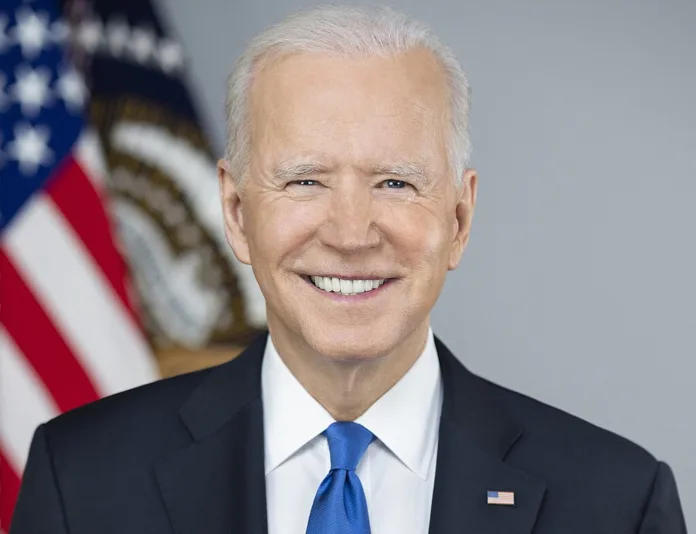As tensions between Iran and Israel escalate, President Biden deploys top advisers and military assets to mediate and prevent a broader regional conflict
On August 15, 2024, President Joe Biden’s administration intensified its diplomatic efforts to prevent an imminent escalation between Iran and Israel. In response to rising tensions and threats of retaliation, the administration dispatched three senior Middle East advisers, including CIA Director Bill Burns, to the region. Their mission is to delay potential military action by Iran and Hezbollah, while also working to negotiate a resolution to the ongoing Hamas-Israel conflict.
The backdrop to this urgent diplomacy involves recent high-profile incidents: the assassination of Hamas leader Ismail Haniyeh in Tehran and the killing of Hezbollah commander Fuad Shukr in Beirut. Both attacks have fueled Iranian and Hezbollah threats of retaliation against Israel, although specifics about the timing or nature of their response remain unclear.
Embed from Getty ImagesThe Biden administration’s strategy includes a surge of U.S. combat aircraft and warships to the region as a show of force and a deterrent against immediate Iranian aggression. Additionally, U.S. National Security Council spokesperson John Kirby warned that an Iranian attack could occur “with little or no warning” and could potentially happen in the coming days.
In parallel, U.S. diplomats are working intensively to mediate between Israel and Hamas. Special envoy Amos Hochstein emphasized the urgency of securing a hostage release and a cease-fire in Gaza to prevent a broader conflict with Hezbollah in Lebanon. The current cease-fire negotiations in Doha, Qatar, are seen as critical to stabilizing the region.
The U.S. diplomatic team, led by Burns, has engaged in talks with key stakeholders, including Israel’s Mossad director, Qatar’s Prime Minister, and Egypt’s intelligence chief. The proposed solution involves a comprehensive plan that includes the release of hostages, a vaccination campaign to combat polio in Gaza, and the restoration of essential services for displaced Palestinian civilians. The ongoing conflict has resulted in significant casualties, with Gaza’s Health Ministry reporting 40,000 Palestinians killed over the past ten months.
The situation’s gravity is reflected in the international response. The U.K. and France have both signaled their readiness to support Israel and contribute to diplomatic efforts. The U.K. has prepared to replicate its previous role in defending U.S. and allied forces if needed, while France continues its diplomatic outreach in Lebanon to support de-escalation.
The timing of these diplomatic efforts, just before the Democratic National Convention, underscores the Biden administration’s commitment to addressing the crisis. The conflict has resonated domestically, particularly among progressive, Black, Arab, and Muslim American voters. Efforts to secure the release of American hostages, including Omer Neutra, have further intensified the administration’s focus on resolving the situation.
Analysis:
Political: The Biden administration’s high-stakes diplomacy in the Middle East highlights its strategic focus on preventing a wider conflict. The deployment of military assets and top advisers underscores the administration’s commitment to maintaining stability in the region. This proactive approach aims to manage the political fallout from potential escalations and demonstrate U.S. leadership on the international stage. The timing of these efforts, coinciding with domestic political events, also reflects the administration’s awareness of the conflict’s impact on U.S. politics and public opinion.
Social: The ongoing conflict and the administration’s response reveal deep societal concerns about the humanitarian toll of the Gaza war. The U.S. public, particularly progressive and minority communities, has been vocal about the need for action to address the crisis. The emphasis on securing hostages and providing aid to Palestinian civilians resonates with broader social concerns about human rights and international justice. The administration’s approach reflects a balancing act between addressing immediate humanitarian needs and managing geopolitical tensions.
Racial: The conflict’s impact on various racial and ethnic communities in the U.S. has been significant. The humanitarian crisis in Gaza has drawn attention from Black, Arab, and Muslim American groups, who have called for greater U.S. involvement in resolving the conflict. The administration’s diplomatic efforts aim to address these communities’ concerns and demonstrate a commitment to human rights, reflecting the intersection of global conflict and domestic racial and ethnic politics.
Gender: While the conflict itself is not gender-specific, the diplomatic efforts involving key female figures such as U.S. Ambassador to the United Nations Linda Thomas-Greenfield and French Foreign Minister Stephane Sejourne highlight women’s roles in high-stakes international diplomacy. Their involvement underscores the increasing prominence of women in shaping global policies and addressing international crises.
Economic: The potential escalation of the conflict carries significant economic implications, both regionally and globally. A broader war could disrupt oil markets, impact global trade, and strain international economic relations. The Biden administration’s diplomatic efforts aim to prevent such economic fallout by stabilizing the region and avoiding a full-scale conflict. The focus on humanitarian aid and reconstruction in Gaza also reflects an understanding of the economic dimensions of conflict resolution.
